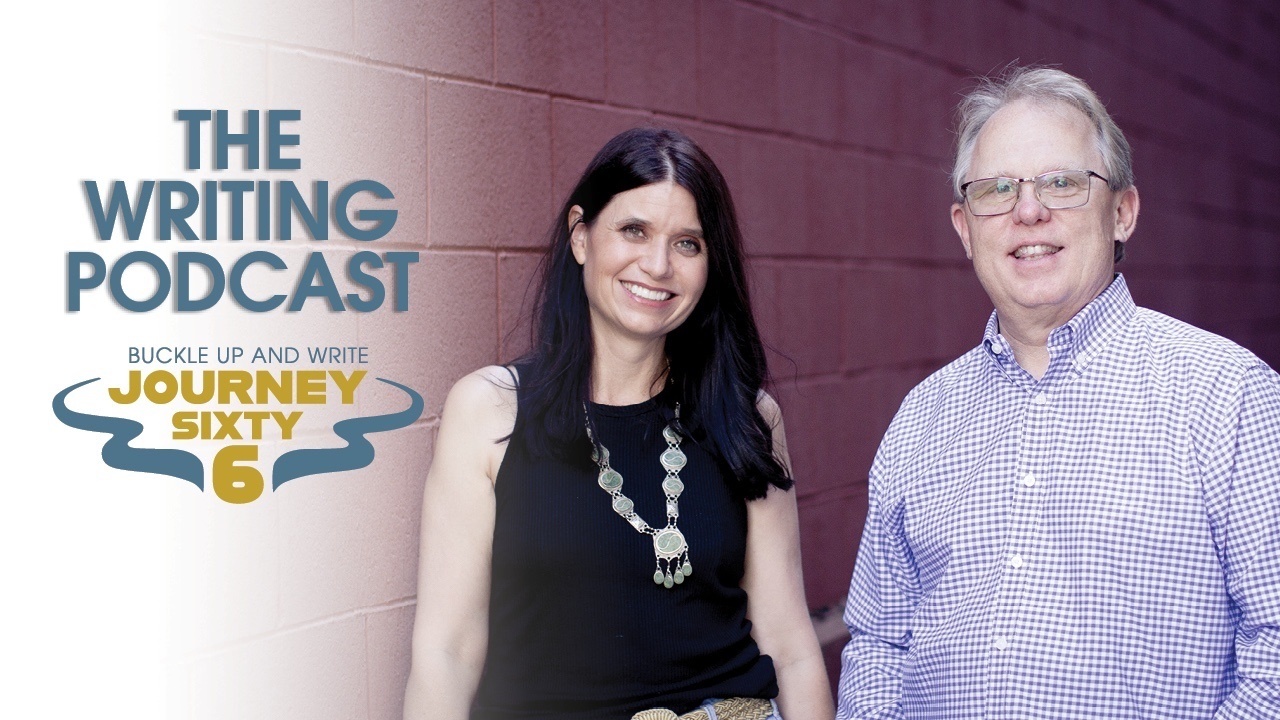[Podcast] How to Build a Platform through Podcasting
Jul 18, 2022
"Why do I need to build a platform?”
From literary agents who want to know about your platform activity in the query letter, to publishers who want to see your book marketing plan, building a platform is an important step to becoming a published writer.
An important piece to building a successful platform is determining where your audience can be found. Does your audience listen to podcasts? Is your audience active on social media? Do your readers prefer blogs?
It’s likely your audience is spread across multiple platforms. And while we want to reach as many potential readers as possible, it’s a feat we likely can’t conquer. A piece of advice: Commit to one platform.
In our recent podcast episode, we talk about five ways you can build a following for your writing. Take a listen and you’ll learn tricks for building a platform through different avenues. This blog post will focus on a specific platform building activity: podcasting.
Podcasting: Is it for Me?
I bet you have a favorite podcast. There’s one for every interest, from decorating, to history, to entrepreneurship, to true crime. Podcasts are ubiquitous; and podcasting is a continuously growing market. A new one pops up every day. Developing your own podcast might seem intimidating. But if you prefer speaking to writing, it’s a great way to build your niche audience. And, hopefully, land a few readers for your book when it’s published.
Producing your own podcast provides consistent opportunities to develop your expertise on a topic and talk about ideas tangential to your book.
So where do you start?
The Podcasting Styles
Before you jump into recording, you need to find your editorial angle. What makes you unique? What can you do to make your podcast unique?
This is as much about what you’re going to talk about as how you are going to package it.
There are different types of podcasts: interview podcasts, conversational co-hosted podcasts, monologue podcasts, and storytelling podcasts. You might consider a hybrid.
The Journey Sixty6 Writing Podcast, for instance, is a hybrid of the interview and conversational style. It works because it allows the founders, Dave and Melissa, to share their expertise and connect personally with their audience as well as provide valuable insights from other experts in the publishing realm.
A couple caveats. The monologue style podcast is particularly personality driven—and demands a host who can hold court for a period of time. And most storytelling podcasts demand writing. Think of the first wildly popular podcast, NPR’s “Serial.”
Often the content will dictate the format.
Whatever you decide, recognize your weaknesses, and lean into your strengths.
In order for your podcast to stand out from the others, you’ll need to find a format that you’re not fighting against, but feels natural and works for your content.
How to Successfully Podcast
Once you land on a style, you’ll need to figure out your editorial angle: what your podcast is about. Being specific, in most cases, is better than being general. Journey Sixty6’s cofounder Dave, for instance, produced a fly-fishing podcast. It wasn’t for the experts. It was for the enthusiasts, who followed the fishing adventures of Dave and his partner.
The big idea is this: You must have a filter for your content, much like you need a thesis for your book. It’s your rudder. We recommend you brainstorm at least 20 podcast topics prior to recording. If you could keep adding topics beyond the 20, you’ll know you have enough ideas to sustain a podcast.
Take those podcast ideas, and create a schedule. Then stick to it. The most successful platforms provide consistent content. Can you post every week? Or every other week? The more frequent the better.
The worst thing to do is to start a podcast and give up after two episodes. Make sure you are ready to commit to the long haul. Because there will be plenty of times early on when you won’t have any listens, and you’ll feel like giving up. Podcasts grow through consistency.
Remember: You want to foster a loyal following. Inconsistent and infrequent postings will frustrate your audience.
Another thing to pay attention to is SEO. Search engine optimization—SEO, improves search engine results for your content. In the case of podcasting, Google can now scan audio for keywords. Which means you need to pay attention to keywords in your podcast as well as titles and descriptions.
When you upload your podcast to your streaming service, be sure to use an SEO-friendly title and description. You’ll want to select a title your listeners will be likely to search.
Will your listeners search for “My most recommended tips on promoting a book”? Or, “How to promote your book on social media”? They’ll likely search using the second option. Be aware of the phrases you use throughout your podcast and in the title and descriptions.
Building a platform is like training for a marathon. You can’t do it overnight. It will take months—years—of consistent, frequent material to gain a loyal audience.
As you build a platform through podcasting, be amenable to changing your editorial angle. Play with different methods of podcasting. And don’t give up.


